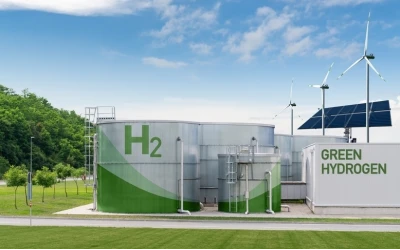A Changing Climate: Net Zero Goals
Industry News, Renewable Energy
Over the past few years public discourse around climate change and the need for renewable energy has rapidly evolved, and so far in 2019 it’s been a topic that has dominated the headlines in the UK. Last week student activist Greta Thunberg, who began the #YouthStrike4Climate protest movement, addressed MPs in Westminster and met top UK politicians to discuss the urgency of climate change. Outside parliament, thousands of Extinction Rebellion (XR) protesters entered their second week of peaceful protests and millions at home watched new documentaries about climate change by Sir David Attenborough on both the BBC and Netflix.
Greta Thunberg and the wave of action that she has inspired in the UK has forced politicians to engage with the demands of both the student protests and the XR demonstrations that have gripped the country. Both movements are calling for big changes – namely the demand for a net zero emission economy by 2025.
Is Net Zero by 2025 Possible?
Six years is not much time at all for such a monumental change in society, it’s a hugely optimistic goal but is far from practical or achievable. The IPCC report released last October warned that to keep temperature increases below 1.5°, global emissions need to reach net zero by the mid 2050s and industrialised nations becoming net zero by the mid 2040s. The Paris Agreement, that the UK and 196 other countries agreed to, requires all signatories to commit to and take action to limit the global temperature – so whilst 2025 seems overly ambitious, 2040 is attainable if the UK government takes firm action.
What’s the Plan?
To get to net zero by 2035 or 2040, huge change and investment in the energy industry is crucial. The Green New Deal, as first proposed in the UK in 2008, is a growing global movement and an economic model that aims “to create a new generation of jobs in the industries and infrastructure we need to tackle the climate crisis” – it’s a bold plan, that involves rapid involvement from government and industry.
Making energy efficiency a national infrastructure priority would involve all sectors of the industry and would create a massive number of jobs. From replacing old boilers and upgrading insulation in homes, to building new infrastructure for EV charging networks, to revoking the ban on onshore windfarms – and opening up the market to build new wind and solar farms across the UK. Innovations in energy storage and carbon capture are urgently needed to support the proposals, as well as a tough look at how the nation’s future in the North Sea will factor in a low carbon world.
In the coming weeks the Committee on Climate Change will be making its recommendations to the government on the UK’s long term climate targets, and local and European elections will be taking place. As the uncertainty around Brexit endures and government continues to be state of flux, it is up to the industry to take charge of the threats of climate change and progress sustainability. Businesses are changing with the times as consumer awareness and pressure grows with each headline, protest and Attenborough documentary.
While there are immense changes coming for the energy industry in the near future, the need for skilled and experienced engineers will be certain. If you are looking for a position in the industry, get in touch with our team of consultants or browse our jobs listings. Give our office a call on +44 (0) 1502 564892 or email us cvs@peoplewithenergy.co.uk
Our latest vacancies are posted on social media. Be at the head of the queue by following us on Facebook and Twitter.




